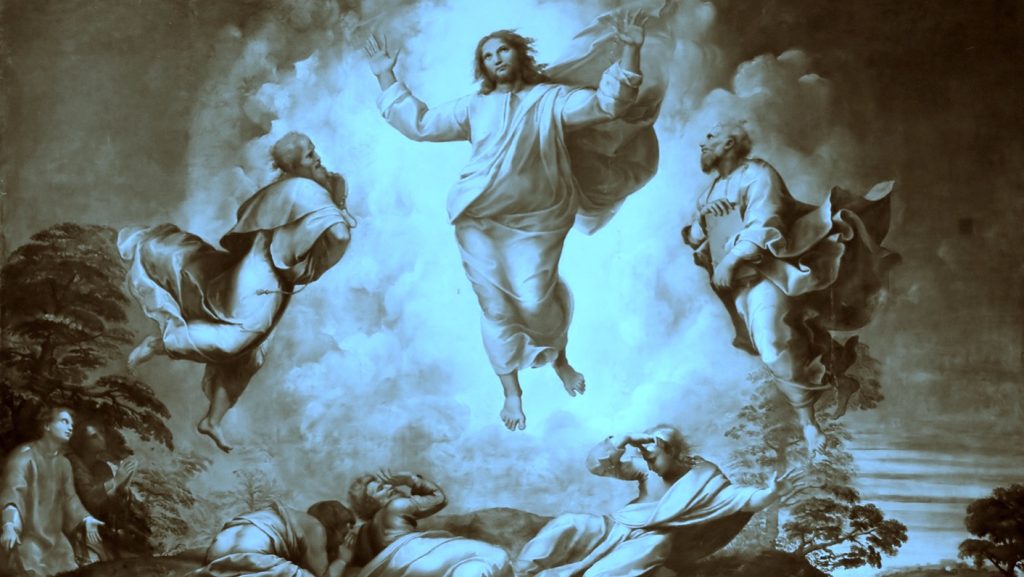 |
| Image: adapted from Raphael’s Transfiguration |
Here are some examples of bad moral guidance given by the Jesus portrayed in the Gospel called John.
The Gospel called John was written about 90-95 CE and is the first book that suggests Jesus was actually a god, as distinct from a human being who had a special relationship with a god.
It was the fourth Gospel to be written, about twenty to thirty years after the Gospel called Mark, and about five to fifteen years after the Gospels called Matthew and Luke.
By now, people knew the world had not ended within the lifetime of those listening to Jesus, so the message had evolved into a more metaphysical long-term one.
Jesus says that people are condemned or saved based on what they believe (3:18) and that God’s wrath remains on those who do not believe (3:36).
3:18 He who believes in Him is not condemned; but he who does not believe is condemned already, because he has not believed in the name of the only begotten Son of God.
3:36 He who believes in the Son has everlasting life; and he who does not believe the Son shall not see life, but the wrath of God abides on him.
After healing a crippled man, Jesus tells him to stop sinning or something worse may happen to him (5:8-9, 14).
5:8 Jesus said to him, ‘Rise, take up your bed and walk.’ 9 And immediately the man was made well, took up his bed, and walked.
5:14 Afterward Jesus found him in the temple, and said to him, “See, you have been made well. Sin no more, lest a worse thing come upon you.
Jesus causes some of his disciples to leave him when he says that they must eat his flesh and drink his blood to have eternal life (6:53-56).
6:53 Then Jesus said to them, “Most assuredly, I say to you, unless you eat the flesh of the Son of Man and drink His blood, you have no life in you. 54 Whoever eats My flesh and drinks My blood has eternal life, and I will raise him up at the last day. 55 For My flesh is food indeed, and My blood is drink indeed. 56 He who eats My flesh and drinks My blood abides in Me, and I in him.
Jesus says that people who leave him will be thrown into the fire and burned (15:6).
15:6 If anyone does not abide in Me, he is cast out as a branch and is withered; and they gather them and throw them into the fire, and they are burned.
All of this puts aside the question of whether Jesus existed, and the question of how the Bible was written and by whom. This article focus only on examples of the bad moral guidance given by the Jesus portrayed in the Gospels called Matthew and Luke.







Michael
ReplyDeleteHave you ever considered turning these missives into a book?
They are so instructive and clear.